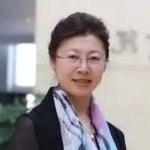
Deputy Director of the Department of Internal Medicine, Sun Yat-sen University Cancer Prevention and Treatment Center.
Extranodal NK/T-cell lymphoma (ENKTCL) of nasal type is a rare subtype, commonly found in the Asian population and associated with the Epstein-Barr Virus (EBV). At present, the prognosis for patients remains poor, especially for relapsed/refractory (R/R) cases. From June 8 to 11, 2023, the 28th European Hematology Association (EHA) annual meeting was held in Frankfurt, Germany. A selected oral report (Abstract No.: S226) from the conference showed that the use of PD-1 inhibitors alone or in combination significantly improved the treatment of R/R ENKTCL patients. This study further confirmed that immune checkpoint inhibitors have become an important treatment option for R/R ENKTCL patients. Oncology Frontier invited Dr. Huiqiang Huang from Sun Yat-sen University Cancer Center to share the research findings and insights at the conference.
Oncology Frontier : EHA 2023 has published the research data on ENKTCL immunotherapy. Can you share this study from France?
Dr. Huang: It is an honor to participate in the important European Hematology EHA annual meeting in person after a special three-year period. Since NK/T lymphoma is common in the Asian population, we are very interested in these findings. Currently, lymphoma has entered the era of immune-targeted treatment, and this French research employed a PD-1 combination scheme to treat NK/T lymphoma. Given the close association of NK/T lymphoma with EBV infection and the significant tumor immune evasion, along with the overexpression of PD-L1 being a critical poor prognostic factor, there have been many reports, especially from our center, on the use of PD-1 inhibitors alone or in combination to treat NK/T lymphoma. This has led to the accumulation of valuable pioneering treatment experiences, shaping a new treatment system. Since the West has fewer NK/T lymphoma cases, we are also very interested in EHA’s research on NK/T lymphoma immunotherapy. This study included 37 patients from 24 centers in France, followed up from 2006 to 2019, and I am pleased to share the results from this European real-world treatment.
Oncology Frontier : How are the results of this study? Can you provide a detailed introduction?
Dr. Huang: This study included patients with relapsed or refractory NK/T lymphoma, treated with PD-1 or a PD-1 combination chemotherapy scheme. The eldest patient reached 79 years old, and the overall response rate (ORR) at the last follow-up was 40.5%, which was a satisfactory treatment effect. The 2-year PFS was 22.4%, and the 2-year OS was 50.2%. Researchers statistically compared the results of the treatment scheme with those of previous chemotherapy-only schemes. They found similar PFS in both groups, but a significant difference in OS (48.4% vs. 23.1%, P=0.011, Figure 1). The long-term OS rate more than doubled. The researchers believe that the PD-1 inhibitor can be combined with current treatments to improve the overall survival of R/R NKT lymphoma, and the toxicity is manageable. However, this study is retrospective with a limited number of cases, so researchers believe that future prospective clinical studies involving PD1 monoclonal antibodies are worthwhile.
Oncology Frontier : What is the profound significance of this study for our clinical practice, and how will we explore this treatment scheme in the future?
Dr. Huang: Indeed, the immunotherapy of NK/T lymphoma has just begun. Especially for PD-1 inhibitors, the efficacy of monotherapy for NK/T lymphoma is often not satisfactory, with some treatment schemes having a low CR rate and short maintenance time. Hence, there are concerns about using PD-1 for NK/T lymphoma treatment due to potential poor results or hyper-progression. However, this study provides important information, showing that the PD-1 inhibitor combined with a chemotherapy scheme is very effective for most patients. For patients with fever or HLH tendencies, appropriate preventive medications should be prepared. After calming the inflammatory factors, the PD-1 inhibitor combination scheme can be used, which is safer and more effective. Therefore, such immunotherapy schemes are worth exploring and promoting domestically. Especially, more attention should be given to the PD-1/PD-L1 inhibitor combined with chidamide or PD-1/PD-L1 inhibitor combined with chemotherapy for first-line NK/T lymphoma treatment. Whether for early or late-stage NK/T lymphoma, the combined schemes with PD-1 inhibitors have promising clinical applications. They are not only effective and safe but also cost-effective, benefiting the vast majority of our patients, deserving our full attention.
Reference:
EFFICACY OF ANTI-PD1 THERAPY IN RELAPSED OR REFRACTORY EXTRANODAL NK/T CELLLYMPHOMA: A MATCHED COHORT ANALYSIS FROM THE LYSA. EHA 2023 S226.



